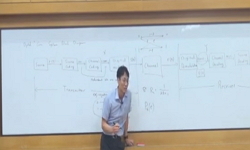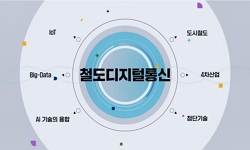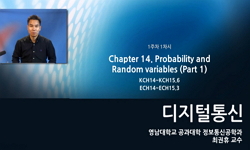A Constitutional Study on the Protection and Restriction on Communication Secrets - Focused on the Wiretapping - While the nation has gone through a rapid development of Information and Communications Technology(ICT), information from many diverse f...
http://chineseinput.net/에서 pinyin(병음)방식으로 중국어를 변환할 수 있습니다.
변환된 중국어를 복사하여 사용하시면 됩니다.
- 中文 을 입력하시려면 zhongwen을 입력하시고 space를누르시면됩니다.
- 北京 을 입력하시려면 beijing을 입력하시고 space를 누르시면 됩니다.
https://www.riss.kr/link?id=T14188358
- 저자
-
발행사항
서울 : 고려대학교 대학원, 2016
- 학위논문사항
-
발행연도
2016
-
작성언어
한국어
- 주제어
-
발행국(도시)
서울
-
기타서명
A constitutional study on the protection and restriction on communication secrets : focused on the wiretapping
-
형태사항
vii, 154 p. ; 26 cm
-
일반주기명
지도교수: 장영수
참고문헌: p. 143-149 - DOI식별코드
- 소장기관
-
0
상세조회 -
0
다운로드
부가정보
다국어 초록 (Multilingual Abstract)
A Constitutional Study on the Protection and Restriction on Communication Secrets - Focused on the Wiretapping -
While the nation has gone through a rapid development of Information and Communications Technology(ICT), information from many diverse fields is collecting, exchanging and affecting our daily lives much in various ways. Under these circumstances, a term which is called `Information-oriented society,' became general. Especially in these days, the popularization of telephone and Internet causes a communication environment upheaval, and electronic devices like smart-phone and mobile computing atmosphere lead its explosive changes once again.
According to the progress of information and communication society, the number of newly evolved crimes are increasing and its techniques tend to became more diverse. Furthermore, a terrorism and serious levels of organized crimes are proliferating as utilizing information technology in these days. Each nation provides institutional strategies for crimes or terrorism prevention; as seeking some kinds of legal mechanism that protect associated problems like privacy or personal information damages. Consequently, there are some new methods for the criminal investigation to handle prompt changes of social phenomena or its crime trends and the power or authority of investigation agencies tend to become more strengthen.
However, all the state institutions cannot infringe upon its substance and cannot exceed the limit of restriction in the fundamental rights which are guaranteed to be in the Constitution. For these reasons, there should be some kind of sufficient control systems to prevent investigation agencies by abusing or misusing the criminal investigation methods and to guarantee the people's fundamental human rights; moreover, those control systems should work practically and precisely. However, the underlay of maintenance law and a legislation system are not yet sufficient, active enough to improve.
The wiretapping has been accepted by an inevitable method for criminal investigations or crime prevention when other methods are not qualified enough to use. Korea had conducted the extensive wiretapping for crime prevention or national security by intelligence agencies or investigation agencies without any clear legal basis or proper control systems.
The protection of Communications Secrets Act is a law which created on a basis of unsavory experiences of our society happened in Analog Communication Era. The Act not only includes self-reflection on the illegal interception committed secretly but also considers practical demands for the necessity of wiretapping for the intelligence and criminal investigation for national interest. The wiretapping on the telecommunication has lawfully practiced following enactment of the Protection of Communications Secrets Act 1994.
However, now the Act needs to have an overall reappraisal because it still has anachronistic contents. Due to the evolving of technologies and its crucial reality, ensuring the fundamental rights of the communications secrets getting harder and harder to protect as it is guaranteed in the Constitution. This harsh fact is the current address of Korea, as known as `Digital Powered Nation'. A series of events happened in last two years, revealed specific loopholes in the Protection of Communications Secrets Act, mainly in regard of the Internet wiretapping. For instance, it does not only search and confiscate e-mail storage in a hard disk but also monitoring the Internet line in real time which is a new technique, so-called `Deep Packet Inspection', emerged as a serious and contradictory problem of the Protection of Communications Secrets Act. The Protection of Communications Secrets Act was amended after all, then completed telecommunication followed the Criminal Procedure Act to find digital evidences.
Moreover, the Criminal Procedure Act was also amended by including enhanced requirements of e-mail search and seizure. To sum up, all affairs and issues related to the Protection of Communications Secrets Act, targets and techniques of wiretapping are evolving from the traditional analogue methods to the digital environments. However, Korean legislation of law could not reflect this actuality to a real case.
First, the existing of traditional wiretapping like an eavesdropping is reproducing its way; gradually tapping the Internet connection of a targeted line and the telecommunication service provider's cooperation wholly conduct to inspect and collect all the information and recombine all the necessary information. Thus, the Protection of Communications Secrets Act does not overcome an essential difference between the analogue technology and the digital technology, which cannot be coped with the new digital technology environments.
Secondly, under current control of Protection of Communications Secrets Act, its dichotomous structure of wiretapping and confiscation does not mean very much in the digital communications' era. The criteria of analogue division has become meaningless in the digital communication environments because of its technical properties which makes no difference between the tapping and the confiscating. In addition, there are no differences between the data collected through wiretapping or search and confiscation under the non-volatile digital communication environments. In other words, there are no essential differences about corresponding a discriminatory control on the digital communications via wiretapping and search and confiscation.
However, identical legislation were applied to completely different digital communication environments in the analogue communications' era and it can easily jeopardize the safety of the fundamental rights. Drastic changes in communication environments and emerging communication medium such as Social Network Service(SNS) and web and mobile messaging services are obviously showing the limit of the Protection of Communications Secrets Act. Therefore, the statutes should be urgently amended as a reflection of this convergence and integration era based on the digital technologies.
This treatise is primarily composed social issues and its legal factors to overcome the Protection of Communications Secrets Act's defects in analogue environmental limits and properly reflected newly developed features of digital technologies. Especially, the problems of environmental changes which are mainly formed with the Internet like digital communications are mainly discussed. This may propose the measures to improve and apply the Protection of Communications Secrets Act, constitutionally under the constant developing technology environments.
목차 (Table of Contents)
- 제1장 서 론
- 제1절 연구의 목적 1
- 제2절 연구의 방법 및 범위 4
- 제2장 통신비밀보호의 헌법적 의의와 기능
- 제1장 서 론
- 제1절 연구의 목적 1
- 제2절 연구의 방법 및 범위 4
- 제2장 통신비밀보호의 헌법적 의의와 기능
- 제1절 통신기술의 발달과 통신비밀보호의 중요성 7
- Ⅰ. 통신의 의의 및 특징 7
- 1. 통신(通信)의 개념 7
- 2. 통신기술 발달에 따른 커뮤니케이션 구조의 변화와 유사개념의 구별 8
- 3. 헌법 제18조상 통신의 속성 10
- Ⅱ. 통신의 비밀에 대한 보호의 필요성 11
- 1. 지식정보화사회로의 진입과 통신의 역할 11
- 2. 통신의 영향력 확대에 따른 국가적 개입의 필요성 증가 12
- 3. 통신기술의 부작용과 국가에 의한 합리적 규제의 필요성 14
- 제2절 통신비밀보호의 헌법적 근거와 체계적 해석 16
- Ⅰ. 통신비밀보호의 헌법적 기초로서의 인간존엄 16
- 1. 헌법의 최고이념: 인간의 존엄과 가치, 자유와 평등 16
- 2. 정보사회에서의 인격적 자율성의 중요성 16
- 3. 인격권의 보호와 실현 조건으로서의 통신비밀의 보호 17
- Ⅱ. 사생활의 영역을 보호하는 기본권과의 관계 18
- 1. 사적 영역의 법적 보호에 대한 관심의 증대 18
- 2. 사생활의 비밀과 통신의 비밀의 관계 18
- 3. 주거의 자유와 통신의 비밀과의 관계 20
- Ⅲ. 타 기본권과의 관계 20
- 1. 커뮤니케이션 과정의 보호와 언론의 자유와의 관계 20
- 2. 개인정보자기결정권의 개념과 통신의 비밀과의 관계 22
- 3. 음성권, 초상권 등과의 관계 23
- 제3절 통신의 비밀을 보호하기 위한 입법적 구체화 25
- Ⅰ. 통신비밀의 보호범위와 주요내용 25
- 1. 통신비밀보호의 기본권 주체 25
- 2. 통신비밀의 보호: 열람, 누설, 활용의 금지 28
- 3. 후속적 정보처리과정의 보호 30
- Ⅱ. 입법을 통한 통신비밀보호의 구체화 31
- 1. 통신비밀보호를 위한 입법의 역할 31
- 2. 통신의 유형에 따른 통신비밀보호 입법 32
- 3. 현대 디지털 통신에 대한 보호 입법 34
- Ⅲ. 통신비밀보호의 중심적 법률로서의 통신비밀보호법 36
- 1. 통신비밀보호법의 연혁과 의의 36
- 2. 통신비밀보호법의 보호대상 38
- 3. 통신비밀보호의 방법 39
- 제3장 통신비밀의 제한과 그 방법으로서의 감청- 통신비밀 보호법을 중심으로
- 제1절 통신비밀제한의 정당성과 구체적 제한 방법 41
- Ⅰ. 통신비밀제한의 정당성 판단 기준 41
- 1. 통신비밀제한의 목적: 국가안전보장, 질서유지 및 공공복리 41
- 2. 통신비밀제한의 기준: 비례성 원칙 42
- 3. 법률유보에 의한 통신비밀제한의 한계: 본질적 내용의 침해금지 43
- Ⅱ. 통신의 비밀을 제한하는 구체적 유형 45
- 1. 전화의 역탐지와 발신자확인장치 45
- 2. 통신비밀보호법의 통신제한조치: 우편물 검열과 전기통신 감청 46
- 3. 통신사실확인자료와 통신자료의 이용 48
- Ⅲ. 통신제한조치 허용의 구체적 요건 및 절차 49
- 1. 범죄수사를 위한 통신제한조치 49
- 2. 국가안보를 위한 통신제한조치 51
- 3. 긴급통신제한조치 52
- 제2절 통신비밀보호법상 감청의 내용과 요건 54
- Ⅰ. 감청의 대상 및 적용범위 54
- 1. ‘전기통신’의 개념과 의미 54
- 2. 감청의 대상에 대한 한계 55
- 3. 감청(監聽)과 도청(道廳)의 구별 57
- Ⅱ. 감청의 임의성과 강제성: ‘당사자의 동의 없이’의 요건 58
- 1. 강제수사로서의 감청 58
- 2. 일방당사자가 독단적으로 행하는 경우 59
- 3. 일방당사자가 동의하여 제3자가 행하는 경우 60
- Ⅲ. 감청의 현재성 요건 61
- 1. ‘송신하거나 수신하는 것’에 대한 판례의 태도 61
- 2. 감청 대상인 ‘전송된 메시지’의 해석 문제 62
- 3. 청취・공독・지득・채록 없이 전기통신의 송・수신만을 방해한 경우 63
- 제3절 감청의 특성과 파급효에 따른 합리적 통제의 필요성 64
- Ⅰ. 감청의 역사적 발달과 통신비밀보호를 둘러싼 문제 상황 64
- 1. 감청의 유래 64
- 2. 전기통신의 광범위한 이용에 따른 정보통신 커뮤니케이션의 증가 65
- 3. 사이버 범죄 등에 대응하기 위한 보호체계의 필요성과 한계 66
- Ⅱ. 감청의 특수성에 기인한 오・남용의 위험성 66
- 1. 감청의 은밀성과 연속성 66
- 2. 정보통신기술의 발달에 따른 광범위한 감청집행의 우려 67
- 3. 수사기관 등의 정보수집역량 강화와 통신보안기술의 발달 69
- Ⅲ. 감청 등 통신비밀보호에 대한 비교법적 검토 69
- 1. 통신비밀보호 법제의 중심축: 국제인권법상 통신감시에 관한 원칙 69
- 2. 감청을 예외적으로 허용하는 국가: 미국, 독일 등 71
- 3. 감청을 폭넓게 인정하는 국가: 영국, 프랑스 등 74
- 제4장 감청과 압수・수색・검증의 이분법적 적용의 문제
- 제1절 감청과 압수・수색・검증의 구별 가능성 76
- Ⅰ. 현대적 변화에 따른 개정 형사소송법의 내용과 그 한계 76
- 1. 압수・수색의 대상에 관한 ‘피고사건과의 관련성’ 76
- 2. 압수・수색의 구체적 방법의 명시와 실효성 77
- 3. 통지의무의 신설 78
- Ⅱ. 형사소송법상 압수・수색・검증의 의의 및 기능 79
- 1. 대물적 강제처분으로서의 ‘압수・수색・검증’의 의미와 대상 79
- 2. 압수・수색・검증의 집행 요건과 절차: 영장주의의 적용 80
- 3. 압수・수색・검증에의 참여권 보장: 방어권의 실질화 81
- Ⅲ. 감청과 압수・수색・검증의 비교 검토 82
- 1. 형사소송법과 통신비밀보호법을 통한 통신비밀의 보호 82
- 2. 강제수사로서의 감청과 압수・수색・검증 84
- 3. 전기통신에 대한 감청과 압수・수색・검증의 허가요건 및 절차의 차이 85
- 제2절 디지털 통신환경 변화에 따른 적용법리의 혼란 87
- Ⅰ. 디지털 통신환경 변화에 따른 문제 상황 87
- 1. 디지털 정보의 개념과 특성 87
- 2. 통신환경 변화에 따른 디지털 정보의 이용과 취약점 89
- 3. 디지털 정보의 강제수집에 대한 차별적 통제 91
- Ⅱ. 아날로그 감청과 디지털 감청의 본질적 차이의 검토 92
- 1. 디지털 정보의 전송구조와 감청 대상으로서의 적합성 92
- 2. 패킷 감청의 포괄성 93
- 3. 디지털 통신의 송・수신 완료 시점의 불명확성 93
- Ⅲ. 감청의 패킷데이터와 압수・수색・검증의 저장데이터 차이 검토 95
- 1. 패킷에 대한 적용법규의 모호성 95
- 2. 포괄적 영장의 불가피성: 포괄적 정보의 수집 96
- 3. 압수・수색・검증 영장을 통한 감청의 집행: 수집된 정보의 동일성 96
- 제3절 디지털 정보의 강제수집 방안 98
- Ⅰ. 감청과 압수・수색・검증의 이분법적 구별의 타당성 검토 98
- 1. 송・수신 완료 시점 구분의 무의미성 98
- 2. 비수사기관에 의한 디지털 정보의 강제수집 문제 99
- 3. 디지털 통신 환경 변화에 따른 보호 방식의 변화 필요성 100
- Ⅱ. 디지털 통신의 압수・수색・검증 개선 방안 101
- 1. 압수・수색・검증을 통한 디지털 통신비밀보호의 실효적 보장 101
- 2. 포괄압수 남용을 막기 위한 사전 통지제도의 실효적 보장 102
- 3. 영장 기재사항과 실제 확보한 정보 불일치의 사후적 해소방안 마련 103
- Ⅲ. 디지털 통신내용의 강제수집을 위한 특별법 법제화 방안 104
- 1. 디지털 통신 강제수집 유형 다양화에 따른 적용 법제 마련 필요성 104
- 2. 인터넷망을 이용하는 통신에의 한정 105
- 3. 원격지 접속허용 및 수집된 정보의 환부규정 등 106
- 제5장 통신비밀의 합리적인 보호를 위한 통신비밀보호법의 개선방안
- 제1절 통신비밀보호와 관련된 조직법적 쟁점의 검토 109
- Ⅰ. 통신제한조치의 허가를 담당하는 기관 109
- 1. 법원의 통신제한조치허가서의 발부현황 및 주요 쟁점 109
- 2. 통신제한조치허가서의 ‘허가’가 갖는 내재적 문제 110
- 3. 외국인에 대한 통신제한조치의 대통령 승인 규율의 타당성 111
- Ⅱ. 통신제한조치의 집행을 담당하는 기관 112
- 1. 통신제한조치 집행의 주체 112
- 2. 정보수사기관의 권력 남용 문제점과 극복방안 112
- 3. 정보통신망 책임자로서의 미래창조과학부장관과 실질적 역할 강화 114
- Ⅲ. 통신제한조치에 대한 국회의 통제 115
- 1. 사법적 권리 구제의 어려움과 정치적 통제로의 연결 필요성 115
- 2. 통신제한조치에 대한 국회 통제의 실효성 115
- 3. 독립적 감시기구의 필요성과 국회와의 협력적 발전방안 116
- 제2절 통신비밀 침해의 사전적 차단의 실효성 확보 방안 117
- Ⅰ. 명확한 통신제한조치 허가 요건을 통한 절차적 통제 117
- 1. 범죄수사를 위한 통신제한조치 대상범죄의 축소 117
- 2. 범죄수사와 국가안보를 위한 통신제한조치의 이원적 규율의 당위성 118
- 3. 통신제한조치 허가 대상자의 불명확성 개선 120
- Ⅱ. 긴급통신제한조치의 타당성 검토 121
- 1. 긴급통신제한조치 요건의 명확성 원칙의 위배 121
- 2. 긴급통신제한조치의 필요성과 남용의 우려 122
- 3. 긴급통신제한조치로 취득한 자료의 증거사용금지 규정의 미비 123
- Ⅲ. 통신제한조치의 기간 및 연장 횟수의 개정 124
- 1. 현행 통신제한조치 기간의 장기성과 연장의 무제한성 124
- 2. 통신제한조치의 기간 및 연장과 관련된 해외 입법례 125
- 3. 통신제한조치의 기간의 축소와 연장 요건의 강화 126
- 제3절 통신비밀침해의 사후적 교정 강화 방안 126
- Ⅰ. 통신제한조치의 집행 및 그에 수반하는 통지절차의 실질화 126
- 1. 전기통신사업자의 감청협조의무 규정의 포괄성 126
- 2. 통신제한조치 사실에 대한 사후적 통지 의무의 필요성 127
- 3. 집행통지 유예 사유의 구체화 및 유예 기간의 제한 129
- Ⅱ. 통신사실확인자료 제공의 통제와 통지 의무 강화 130
- 1. 통신사실확인자료의 요청권자와 남용 가능성 130
- 2. 통신사실확인자료의 기지국 정보 포함에 따른 실시간성 131
- 3. 통신사실확인자료 제공 통지 규율의 사각지대 132
- Ⅲ. 감청 설비에 대한 관리체계 133
- 1. 감청표준화를 통한 합리적 규제의 필요성 133
- 2. 감청설비의 인가와 신고 관련 권한의 강화 134
- 3. 감청설비의 보유와 감청 주체의 분리 필요성 135
- 제6장 결 론 137
- 참 고 문 헌 143
- Abstract 151












